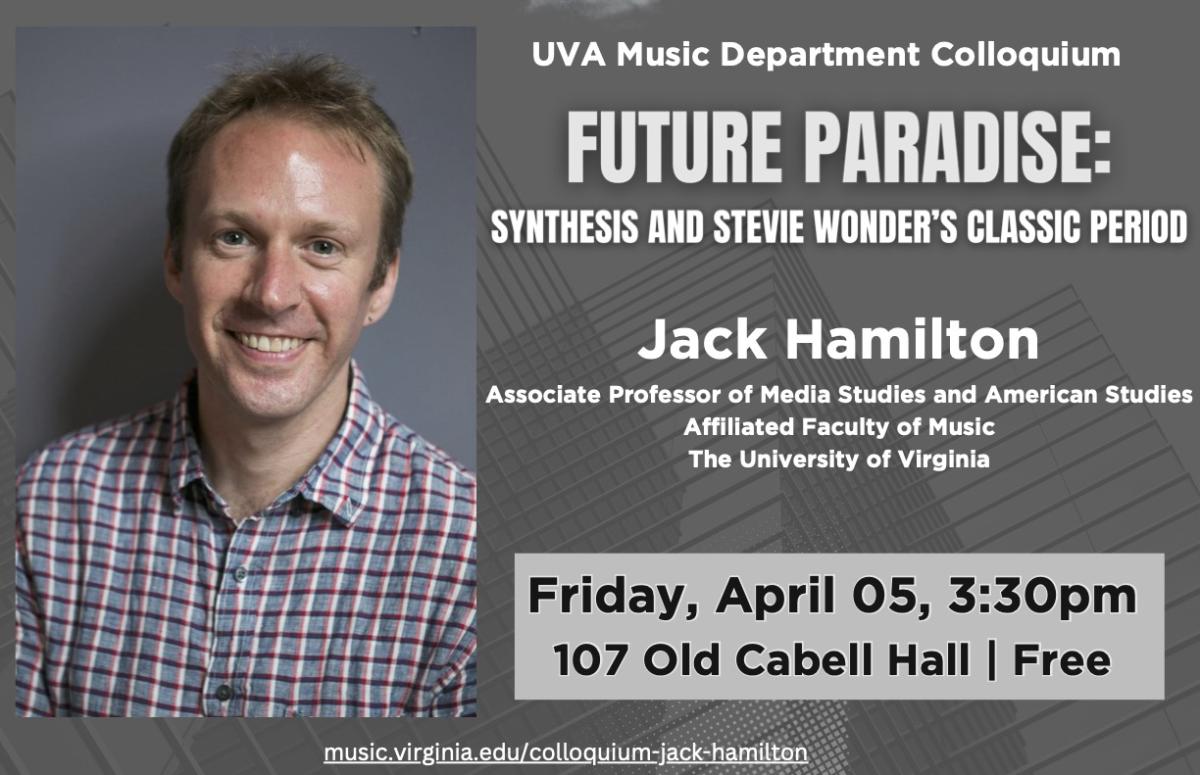

Future Paradise: Synthesis and Stevie Wonder’s Classic Period
The five albums made by Stevie Wonder from 1972 to 1976 won him an unprecedented three Album of the Year Grammys and placed him at the critical and commercial vanguard of Seventies pop. But Wonder’s “classic period” also marked a revolution at the nexus of music, technology, and cultural politics, one that found him creating other-worldly techno-utopias, sonic visions of “another dimension,” as Wonder put it to an interviewer in 1973. This talk explores Wonder’s use of synthesizer technologies during the 1970s to create cutting-edge soundscapes that offered vital windows into black American life at the dawn of the “post-civil rights” era, and argues that Wonder’s political commitments were often intermingled with his musical commitments to destabilizing place, race and genre through technological experimentation and innovation.
Jack Hamilton is an associate professor of American Studies and Media Studies at the University of Virginia, and the author of the book Just around Midnight: Rock and Roll and the Racial Imagination. He is also the pop critic for Slate magazine and his writing has appeared in The Atlantic, The New York Times Magazine, The New Yorker, and many other publications. More information about this event can be found here.